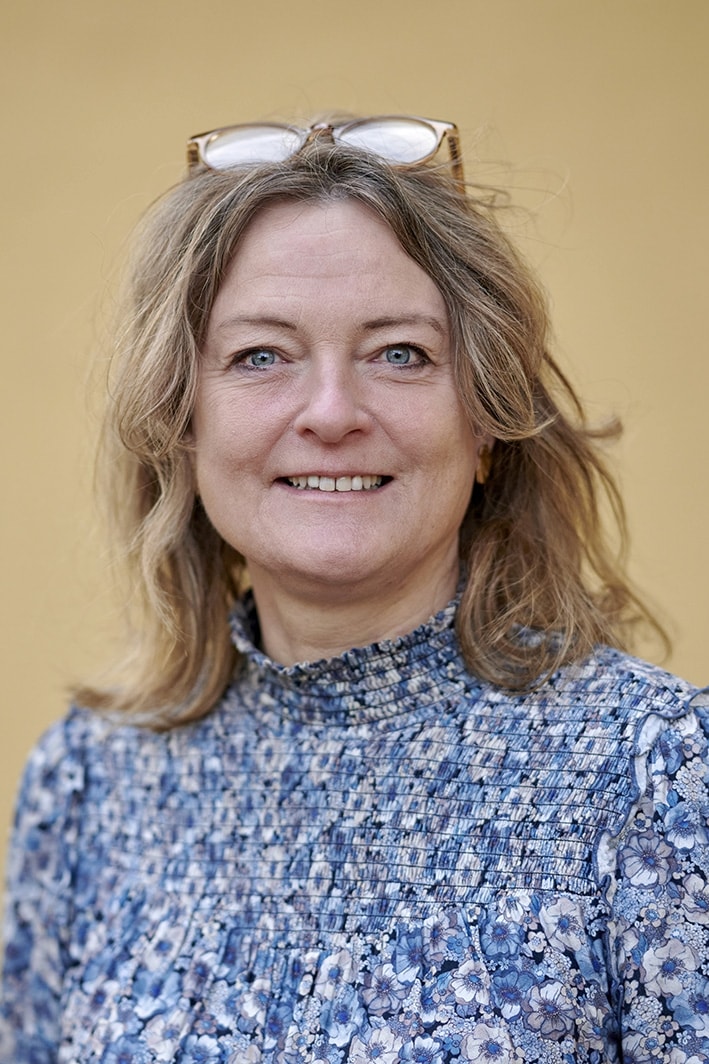
Researcher
Trine Arnam-Olsen Moos
Academic Qualifications
Ph.D. student and development nurse Trine Arnam-Olsen Moos is employed at Filadelfia Research.
- 2022-Present: Ph.D. student at Filadelfia Research and the Department of Public Health, Section of Nursing Research at Aarhus University
- 2016-2018: Master in Nursing Science, Department of Public Health, Section of Nursing Research at Aarhus University
- 2005-Present: Epilepsy Hospital, Filadelfia
Trine Arnam-Olsen Moos’ Research
Trine Arnam-Olsen Moos seeks insight into the perspectives of adults with epilepsy and their relatives to achieve a deeper understanding of their perceptions and experiences of epilepsy, health, and well-being. This understanding serves as a basis for ideas to develop and improve care in clinical practice.
Current Ph.D. Project
The title of the Ph.D. project is: “Suffering and Well-being as Experienced by Adults with Refractory Epilepsy Undergoing Rehabilitation in a Community Setting and Their Next of Kin – A Qualitative Study.”
In Denmark, some of the most severely affected epilepsy patients are offered psychosocial assessment and/or rehabilitation in a hospital context to uncover the patient’s functional level and work towards a meaningful and independent life based on the patient’s own values, preferences, and resources.
Studies show significant challenges after discharge and during the transition from hospital to community. Currently, there is very little (and no scientific) knowledge in Denmark about how rehabilitation after hospitalization manifests in the lives of patients and their relatives—what is significant for their well-being and what limitations and challenges are present after discharge.
The aim of Trine Arnam-Olsen Moos’ current research project is to identify the challenges that adults with epilepsy and their relatives experience after discharge from a rehabilitation hospital and to integrate these new ‘insider’ perspectives with professional perspectives from rehabilitation professionals and other relevant partners in the epilepsy field across social, primary, and secondary sectors to develop concrete recommendations.
The purpose of these recommendations is to improve the quality of sector transitions and thereby promote well-being and the outcome of the continued rehabilitation process in a municipal context for the benefit of severely affected epilepsy patients and their families—as well as for society as a whole.
Research Areas
- Patient and Relative Perspectives
- LifeWorld-Led Care
- Transition in Sector Transitions
- Rehabilitation
- Family Nursing
- Phenomenology
- Suffering and Well-being
- Qualitative Research
- Sexuality in Relation to Epilepsy




